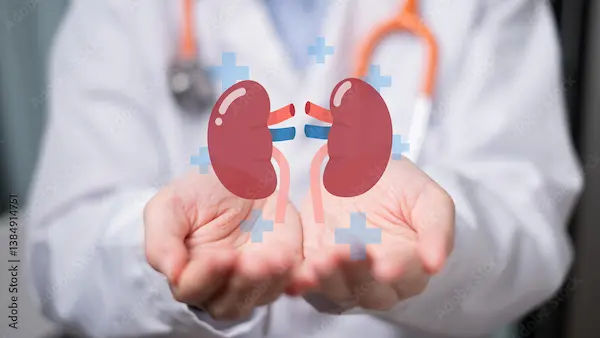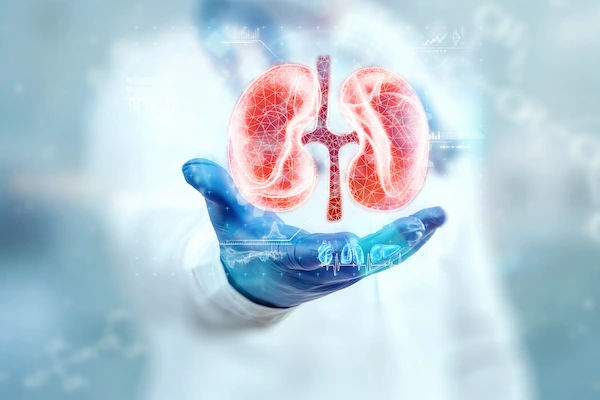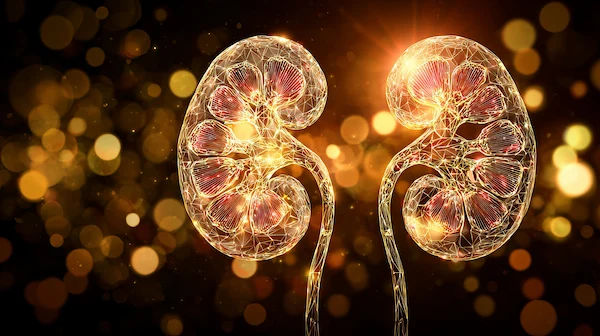- male
- 50 Years
- 31/03/2021
How is kidney function related to blood pressure?
Answered by 1 Apollo Doctors
Your kidneys play a key role in keeping your blood pressure in a healthy range. Diseased kidneys are less able to help regulate blood pressure. As a result, blood pressure increases.
Dr. Anshul Suggests...
Consult a Nephrologist
Answered 04/07/2025
0
0


Ask Apollo
AI powered Health Chatbot
-
Role of Kidneys in Blood Pressure Regulation
- Kidneys manage blood pressure by controlling fluid balance and releasing hormones like renin.
-
Impact of Blood Pressure on Kidney Function
- High blood pressure can damage kidney blood vessels, impairing waste filtration.
-
The Cycle Between Kidney Health and Blood Pressure
- Poor kidney function can elevate blood pressure, creating a detrimental cycle.
-
Importance for Middle-Aged Men
- Monitoring blood pressure and kidney health is crucial for men around 50.
-
Recommendations for Maintaining Healthy Kidney and Blood Pressure
- Adopt a healthy lifestyle, have regular check-ups, and consult specialists as needed.
-
Diagnostic Tests and Monitoring
- Regular tests include blood pressure checks, urine analysis, and kidney function tests like serum creatinine and eGFR.
Recommended next steps
Take a Creatinine Test Test or Take a CREATININE/EGFR Test
Answered 20/08/2025
0
0
More Nephrology Health Queries
View allHow do you get active with kidney disease?
Prefer foods lower in fats, sugar/salt and calories and higher in fiber. Focus on fruits, green vegetables and whole grains. Regular physical activity, take medicines and have regular doctors visits.
Answered by 1 Apollo Doctors
I'm getting a creatinine test soon and I'm a bit unsure about whether I should be drinking water beforehand. Like, how much water is okay to drink, and when should I drink it? Does it have any impact on the results of the creatinine level test? I'm just trying to make sure everything's good for accurate results.
drink 6 to 8 liters water per day
Answered by 1 Apollo Doctors
What are the symptoms of acute kidney failure?
Symptoms and signs include decreased urine output, fluid retention causing swelling in your legs/ ankles or feet, shortness of breath, fatigue, confusion, nausea, weakness, irregular heartbeat, chest pain or pressure and seizures or coma in severe case.
Answered by 1 Apollo Doctors
Disclaimer: Answers on Apollo 247 are not intended to replace your doctor advice. Always seek help of a professional doctor in case of an medical emergency or ailment.





